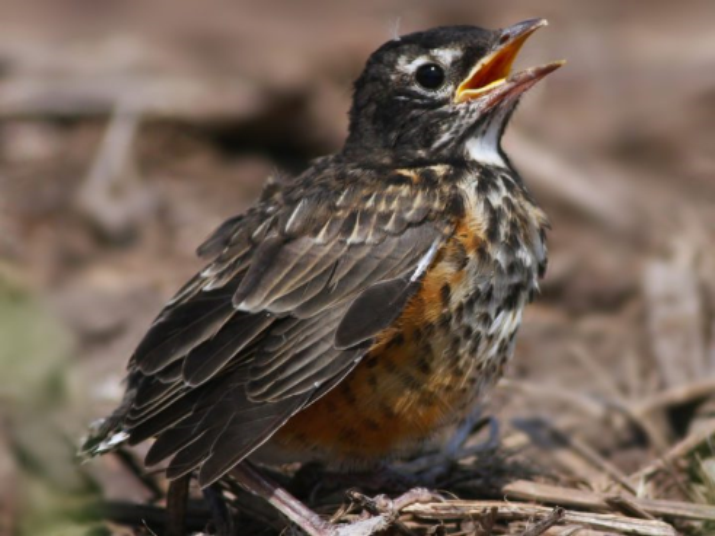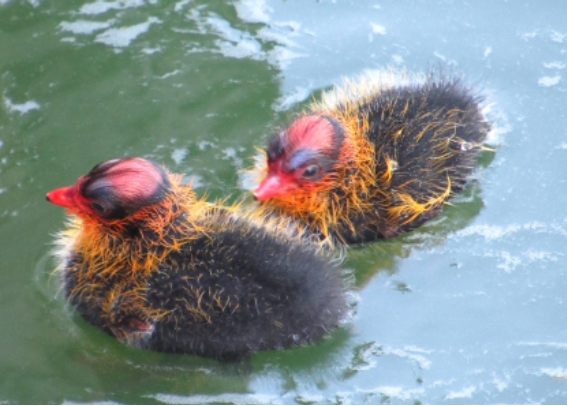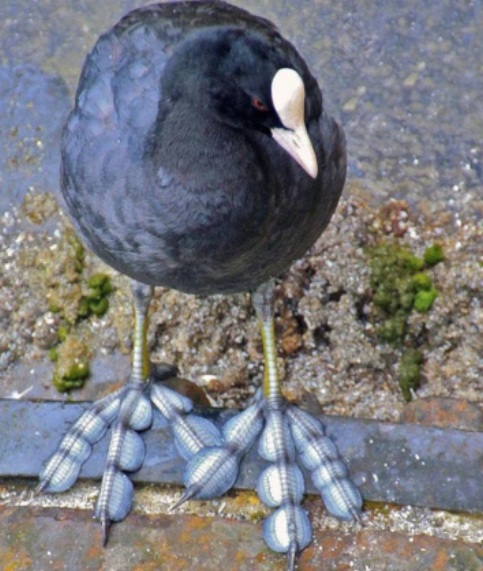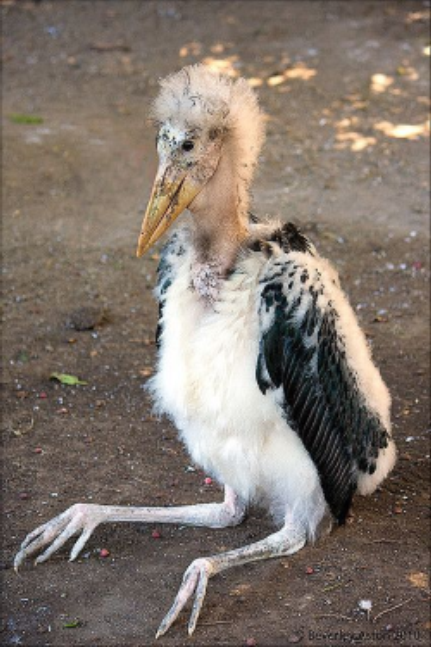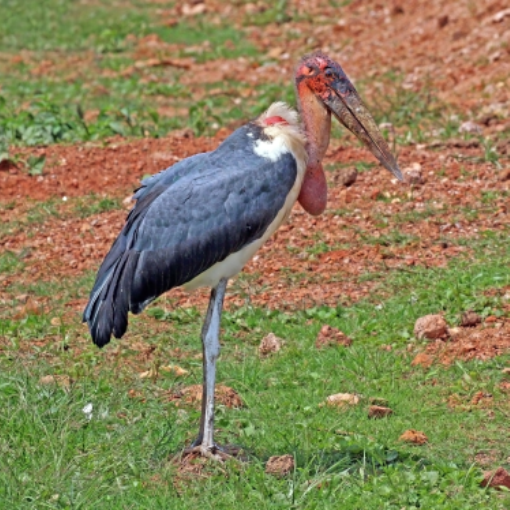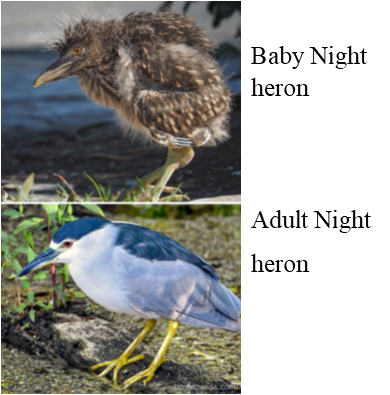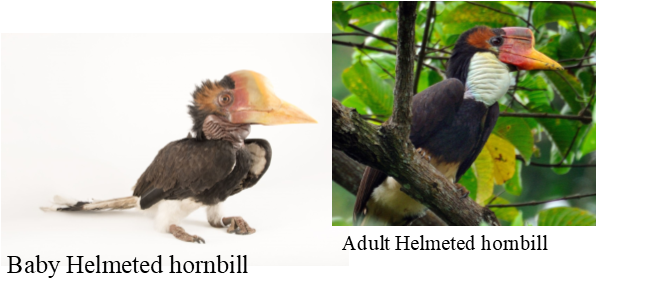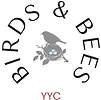LINK TO PDF NEWSLETTER DOWNLOAD

FOUND A BABY BIRD?
Here’s how to determine whether to take action:
The first thing to do is to figure out if the baby bird is a nestling or a fledgling.
Most of the baby birds people find are fledglings. These are young birds that have just left the nest, and can’t fly yet, but are still under the care of their parents and do not need our help. Fledglings are feathered and capable of hopping or flitting, with toes that can tightly grip your finger or a twig. These youngsters are generally adorable and fluffy, with a tiny stub of a tail.
When fledglings leave their nest they rarely return, so even if you see the nest it’s not a good idea to put the bird back in—it will hop right back out. Usually there is no reason to intervene at all beyond putting the bird on a nearby perch out of harm’s way and keeping pets indoors. The parents may be attending to four or five young scattered in different directions, but they will return to care for the one you have found. You can watch from a distance to make sure the parents are returning to care for the fledgling.
If the baby bird is sparsely feathered and not capable of hopping, walking, flitting or gripping tightly to your finger, it’s a nestling. If so, the nest is almost certainly nearby. If you can find the nest (it may be well hidden), put the bird back as quickly as possible. Don’t worry—parent birds do not recognize their young by smell. They will not abandon a baby if it has been touched by humans.
If the young bird is injured, you can’t find the nest or are absolutely certain that the bird is orphaned, then your best course of action is to phone a wildlife rehabilitator. There are two wildlife rehabilitation organizations in and around Calgary as listed below:
Calgary Wildlife Rehabilitation Society (403) 214-1312
Alberta Institute for Wildlife Conservation (403) 946-2361
Don’t Raise Baby Birds Yourself
It’s illegal to bring a baby bird home and try to raise it. Most young birds won’t survive if cared for by well meaning but inexperienced people. Those that do survive will be at a disadvantage. They’ll have missed important lessons that they would have learned from their parents, such as how to find food and water in the wild and how to avoid predators.
Protect Baby Birds from Cats
While all birds are threatened by outdoor cats, baby birds are especially vulnerable. Birds should never be removed from the wild to protect them from cats or other predators. If there is a baby bird on the ground and a cat nearby, put the cat indoors until the bird is able to fly. If the cat belongs to a neighbor, ask the owner to remove the cat or, when the owner is not known, spray the cat with water to encourage it to leave the property.
